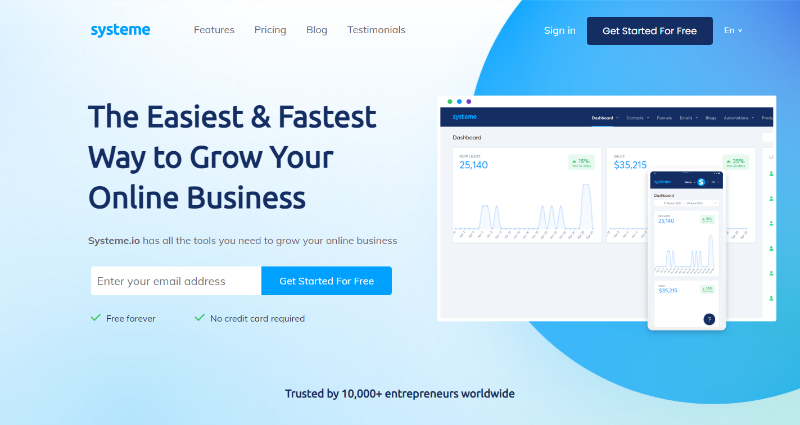Processing…Please wait.
Search Engine Land » Channel » Content Marketing »
Of the many different content management systems and web publishing platforms I’ve done SEO for, WordPress is the most popular.
Blogs, company websites and web shops run on WordPress. Designers are fascinated by its versatility and the range of adaptations possible with it. Users love its simplicity and effectiveness.
It’s a simple blogging system that needs little or no knowledge of coding, website design or other technical details. Nearly 25% of the world’s top 10 million websites — including TIME, Mashable, Marketing Land and Search Engine Land — are built on WordPress.
But being easy to use, WordPress also makes it tempting to take on things you shouldn’t — or overlook/ignore important elements of SEO that can cause problems with business growth, success and profitability.
This column isn’t a step-by-step guide to WordPress SEO, but will address some of the frequent questions I’m asked about SEO for WordPress websites. It will familiarize you with WordPress SEO and dispel some of the myths and misinformation about SEO in general.
No, there isn’t such a thing as a search engine optimized CMS. Though WordPress is search engine friendly, you will still need to do some manual SEO work for best results. Just switching to WordPress won’t rank your site on Google’s front page auto-magically.
The myth of the “SEO Optimized CMS” continues to spread only because CMS vendors have made it a unique selling point. They announce it at client meetings. They proudly state it on their websites. They highlight it on marketing materials. They speak of it at conferences.
And it works!
Business owners or leaders without much technical knowledge about SEO often cannot distinguish between the similar-sounding terms “search engine optimized” and “search engine friendly.” I’ve seen companies invest the equivalent of annual salaries of a team of employees on a new CMS that was chosen over others only because they believed it would cover all their SEO needs.
Sadly, that’s not how it works. What WordPress does offer is a great starting point. You can build a site without spending much time or money, and easily weave additional SEO elements into it — if you know how.
Umm… no.
SEO isn’t a “quick and easy install.” It’s not turnkey. It’s not “set and forget.” That isn’t how SEO works. SEO is a continuous process that should be woven into the fabric of your ongoing marketing efforts.
There’s no WordPress plugin that can cover all elements of SEO, just as a great hammer won’t by itself help you build a fantastic new house! Configuring your SEO plugin correctly is a step in the right direction — but it’s only the first step! The big picture is a lot more complex and comprehensive.
You need a specialist working for you who understands organic search, knows how SEO strengthens your marketing, and keeps you from making costly mistakes. This person should be engaged in a long-term relationship with you — either as a member of your staff or a consultant/agency on a monthly retainer — to ensure that you perform at your best.
Maybe a few real life examples will help illustrate this better.
There are two SEO plugins that distinguish themselves from the rest: All In One SEO Pack and WordPress SEO by Yoast. The former is slightly more popular, while the latter is slightly better rated. (I use Yoast, myself.)
Keep in mind that you may also need additional plugins for tasks tangential to SEO, such as one that allows you to implement your analytics tracking code across the website.
Before deciding which plugin(s) to use, here are some important questions to address:
Many factors — like cost, ease of installation, and web server management — can influence your choice.
If you have the resources, time and capacity to deal with hosting, upgrades, backing up data and restoring the site, get a virtual private server (VPS) and manage everything yourself.
If not, a managed WordPress hosting solution handles your technical, security, administration and performance issues for a modest fee, leaving you free to focus on your business and handle things like content creation. Plus, you can sleep better at night!
A few more things to consider with your blog hosting include:
Well… yes and no.
A great benefit of WordPress is the huge array of free themes available. Many are harmless and are great choices for any website pr blog. Some, however, can hurt your SEO. Consider the following:
That’s a great question if you already have a company website and want to add a blog. Where to install WordPress? Let’s look at your options.
New domains are usually relevant for short-lived campaigns, such as event marketing or product launches. But hosting your blog on a fresh domain is an option. While you may not achieve the same SEO effect as for your “main” company website, an experienced SEO consultant can help you reach your audience efficiently, working with your creative agency and developers in getting things right and preventing an organic search fiasco.
By helping content marketers focus on what your audience cares about, testing if creative ideas are likely to work, and adjusting the site’s keyword strategy suitably, your chances for success can be maximized. But first ask if you’re sure you really need a new domain.
If not, your blog may be hosted on a subdomain, like blog.yourcompany.com
My own experience suggests that, for a blog, it is best for SEO when you install WordPress in a subfolder, like yourcompany.com/blog.
On WordPress, you have the option to assign your pages and posts to more than one category. But how will it affect SEO? Not too badly — if you take care.
When you post the same content in several categories such that that it appears on more than one URL, you have duplicate content. This means you either must avoid doing it, or inform Google which version of the page is the original which is to be indexed. You can do this using meta directives and rel=canonical.
If your content will only live on one URL, you likely won’t need to worry about duplicate content issues (even if other pages on your site contain an excerpt). Be sure to check with your SEO consultant to see how your particular WordPress theme handles categories.
Though using H1 tags more than once is not wrong from a coding or design point of view, it’s not ideal for SEO. HTML5 opened the door to this practice, but when people use multiple H1 tags on a page, it can be seen as spammy and harm organic search rankings.
I recommend that you only use H1 for the first heading, which is often the most important one on the page. Keep the old adage in mind: If everything is important, then nothing really is!
WordPress widgets make it easy to publish identical blocks of content across multiple pages, such as sidebars and footers. That may not be dangerous or harmful for SEO, though it rarely offers any advantage.
A smarter way to use WordPress widgets is to offer tailored content focused on what the visitor finds on that page. This adds value, is user-friendly, and enhances the browsing experience. You can use widgets to
A strategy like this would work equally well for any site, such as one about dog training, or travel or automobiles. WordPress widgets let you target sub-niche audiences within your niche, engaging them in content they have expressed interest in. They act like vitamin injections for your business!
The key SEO lesson here isn’t to add many new things or a broader range of content, functions or offerings, but instead to narrow down on to the subject or topic being discussed on that URL. Less is more. Remove clutter that isn’t moving you closer to your business goals.
A word of caution: Be careful with site-wide links that are not 100% relevant. Stay focused on the topic. If the link isn’t relevant in context, remove it.
While you can use WordPress in another language, you should always set it up to speak your visitor’s language. That provides a better, richer, more engaged user experience, which enhances your SEO.
The WordPress community has already translated the tool into many languages. You can configure your installation through the administrator panel — without any coding or technical skills.
Because it isn’t a good user experience to mix languages on your website, make sure you translate all WordPress plugins into your language also. Before buying it, check to see if a plugin is translation-ready, so that you can translate it using a program like Poedit. Do the same for any WordPress theme you install. This becomes particularly important if you plan to expand your business into new markets, countries and regions.
Avoid localization by IP because many Web users are on proxy servers and VPN switches which can make it seem as if they are in another location or country. Don’t automatically switch languages, creating confusion in the visitor’s mind.
I hope you enjoyed these practical WordPress SEO tips. I’ve tried to focus on popular ones from my experience. You may have other great tips to share, or questions to ask. Please join the discussion by posting a comment or question below.
Opinions expressed in this article are those of the guest author and not necessarily Search Engine Land. Staff authors are listed here.
New on Search Engine Land
About The Author
Related Topics
Get the daily newsletter search marketers rely on.
Processing…Please wait.
See terms.
Learn actionable search marketing tactics that can help you drive more traffic, leads, and revenue.
August 16-17, 2022: Master Classes
September 29-30, 2022: SMX Advanced Europe
November 15-16, 2022: SMX Next
March 15-16, 2023: SMX Munich
Discover time-saving technologies and actionable tactics that can help you overcome crucial marketing challenges.
Start Discovering Now: Spring (virtual)
September 28-29, 2022: Fall (virtual)
How Google Paid Search Automation Has Changed the Game for Marketers!
Harness Your First-Party Data For Customer Acquisition & Conversion
Tracking Growth From Organic Search
Enterprise Marketing Performance Management Platforms: A Marketer’s Guide
Enterprise Customer Journey Orchestration Platforms: A Marketer’s Guide
Enterprise Account-Based Marketing Platforms: A Marketer’s Guide
How Bots and Fake Users Skew Marketing Data and Analytics
Receive daily search news and analysis.
Processing…Please wait.
Topics
Our Events
About
Follow Us
© 2022 Third Door Media, Inc. All rights reserved.

